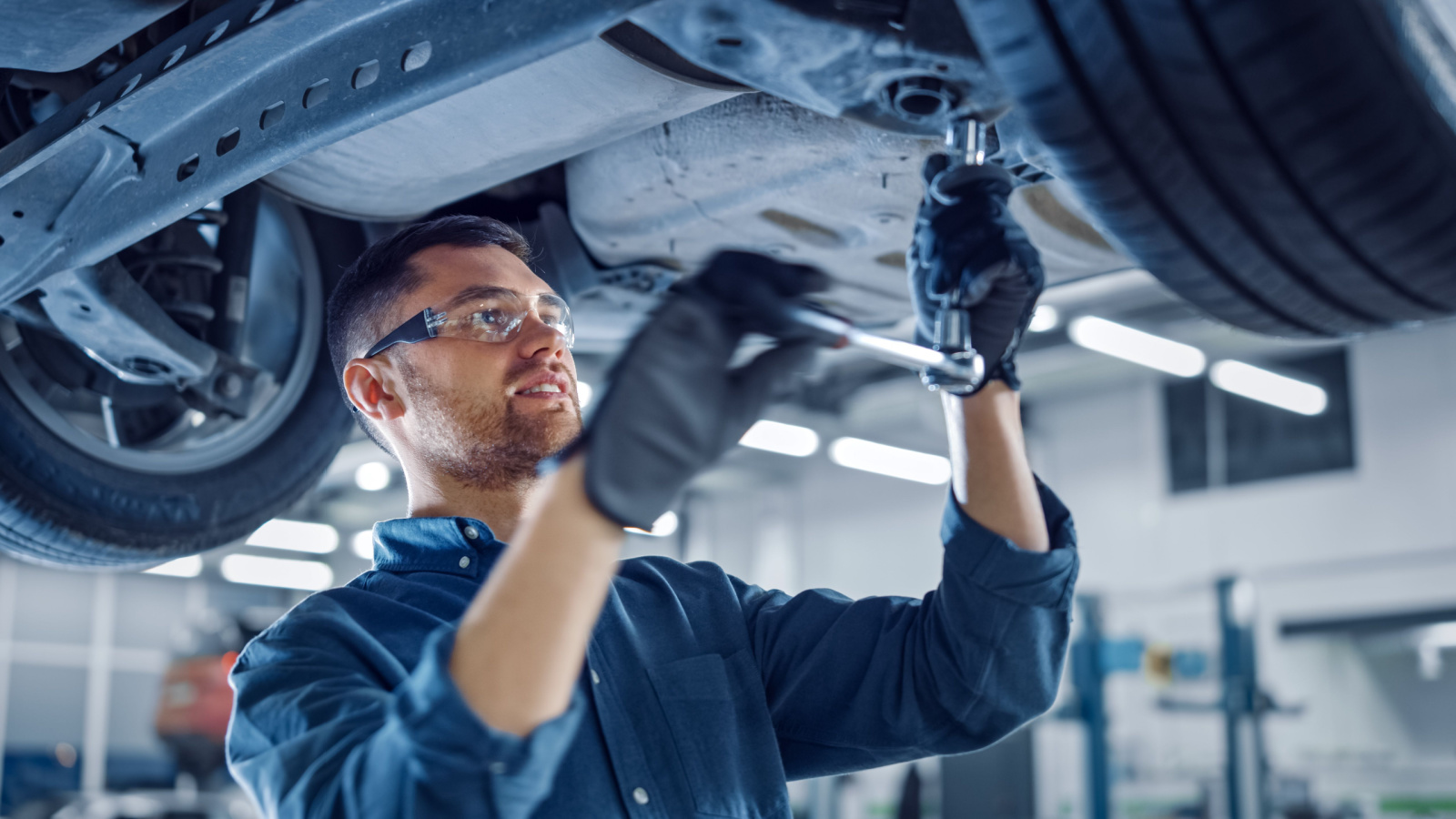There’s nothing worse than an unexpected breakdown on the side of the road when you have somewhere to be. With proper maintenance, you can keep your car running reliably, protect the value of your investment, and stay safe on the road. Here are essential tips to keep your vehicle in top condition for years to come.
Regular Oil Changes

Old oil can build up sludge, which damages the engine over time and prevents it from running smoothly. Check your car’s manual for the recommended oil change interval and stick to it.
Check Tire Pressure

Properly inflated tires ensure better fuel efficiency and reduces tire wear. Check the pressure monthly and before long trips, adjusting as necessary to meet the specifications found in your vehicle’s manual. Underinflated tires can also affect the car’s handling, potentially leading to accidents.
Replace Air Filter

A clean air filter improves engine performance and efficiency by allowing air to flow freely to the engine. Replace the air filter every 12,000 miles. A clogged filter can lead to reduced acceleration and increased engine wear.
Monitor Fluid Levels

Regularly check fluid levels, including brake, power steering, transmission, and coolant fluids. Low fluid levels might indicate a leak and can lead to system failures. Keeping these fluids at recommended levels helps ensure your car operates safely and efficiently.
Maintain Battery Connections

Corrosion at the battery terminals can lead to poor connections and battery failure. Clean the terminals occasionally with a brush and a baking soda paste. Ensure the connections are tight to avoid starting issues.
Keep It Clean

Wash your car regularly to protect the paintwork and prevent rust. Pay special attention to the undercarriage during winter months when roads are salted. A clean car is also more fuel-efficient as dirt and grime increase drag.
Inspect Belts and Hoses

Regularly inspect belts and hoses for wear and tear. Look for signs of fraying, cracks, or leaks, especially in the timing belt and serpentine belt. Replacing them before they break can prevent more expensive damage.
Use the Right Fuel

Always use the grade of gasoline recommended in your owner’s manual. Higher octane fuel does not necessarily improve performance, but using a lower octane than specified can cause engine knock.
Follow a Service Schedule

Following the vehicle manufacturer’s recommended service schedule ensures all important components are checked and maintained, which can prevent costly repairs in the future and keep your car in top condition. Regular servicing also maintains the car’s resale value.
Check Brake Pads

Worn brake pads reduce braking efficiency and can damage rotors, leading to expensive repairs. Have your brakes inspected at least once a year or if you notice any change in braking performance.
Rotate Tires

Rotating your tires helps them wear evenly, extending their life and improving handling. Most manufacturers recommend rotating tires every 5,000 to 7,000 miles. Consistent wear ensures that all tires need replacement at the same time, saving money and maintaining better vehicle stability.
Align Wheels

Proper wheel alignment improves tire lifespan and vehicle handling. Misalignment can cause uneven tire wear and poor handling. Have your alignment checked if your car starts pulling to one side or after a significant impact like hitting a curb.
Test the Lights

Regularly check all lights—headlights, turn signals, brake lights, and emergency flashers—for functionality. Replace bulbs that have burned out or are flickering. This keeps you safe during night driving and poor weather conditions.
Listen for Strange Noises

Squealing when braking might indicate worn brake pads, while a rumbling noise could suggest an exhaust leak. Addressing strange noises quickly can prevent further complications.
Keep an Emergency Kit

Always have tools, jumper cables, a flashlight, batteries, a first aid kit, and warm blankets in your car. This can be a lifesaver during unexpected breakdowns, especially in remote areas or during adverse weather conditions.
Change Spark Plugs

Spark plugs are essential for engine performance and efficiency. Replace them according to your car’s maintenance schedule—typically every 30,000 to 50,000 miles. Worn spark plugs can lead to poor fuel economy and engine misfires.
Inspect Exhaust System

Regular inspections of the exhaust system can prevent toxic fumes from entering the vehicle. Look for rust or holes, particularly in older cars, which can indicate a leak. A well-maintained exhaust system also helps your engine run more efficiently.
Check for Recalls

Stay informed about recalls that might affect your vehicle. Automakers are required to fix safety issues by law. Check the National Highway Traffic Safety Administration’s website or register with your manufacturer for updates.
Manage Weight Load

Avoid overloading your car as excess weight puts additional strain on your engine and brakes, leading to more rapid wear. Check your car’s maximum weight capacity in the owner’s manual and stick to it.
Park in the Shade

Protect the interior and exterior from sun damage by parking your car in the shade. Over time, the sun can fade paint and crack the dashboard. If shade isn’t available, use a car cover or windshield sun protector.
Use Quality Replacement Parts

When repairs are necessary, opt for high-quality replacement parts that meet or exceed OEM specifications. Cheap alternatives may save money upfront but can lead to more frequent replacements and potentially compromise vehicle performance.
Educate Yourself

Understanding the basics of your car’s mechanics can help you identify problems early and communicate more effectively with mechanics. Simple knowledge about common issues and maintenance needs can save you money and prevent scams. Many community colleges and adult education programs offer basic automotive courses.
Avoid Short Journeys

Frequent short journeys can prevent your car’s engine from reaching the optimal operating temperature. This can increase wear and tear and reduce efficiency over time. Combine short trips when possible and consider walking or biking for very short distances.
Practice Smooth Driving

Adopt smooth driving habits to reduce wear on your car’s systems. Avoid harsh acceleration and sudden stops whenever possible. Smooth driving prolongs your vehicle’s lifespan and improves fuel efficiency.








